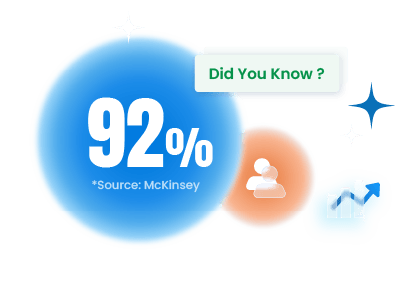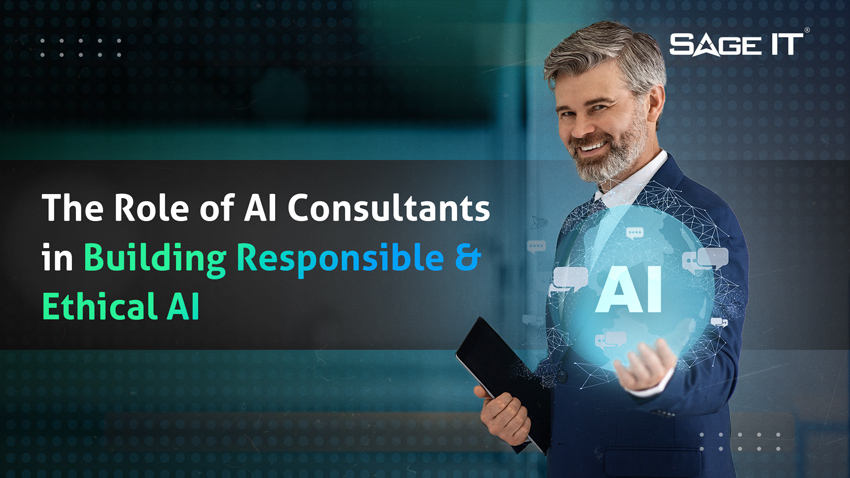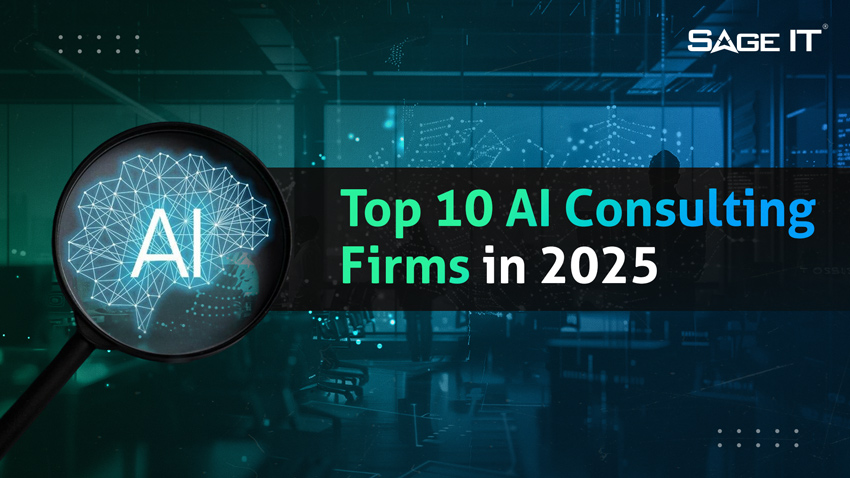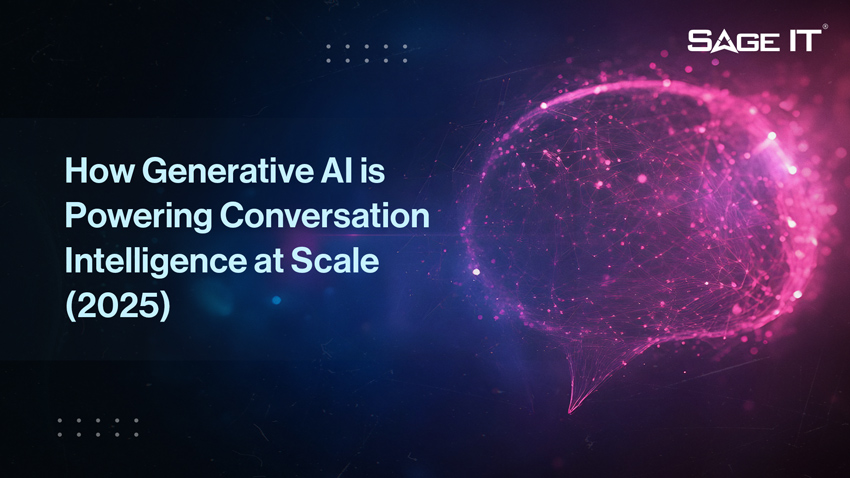Artificial Intelligence is no more a topic of science fiction. It has become a buzzword in the tech industry, with many businesses already utilizing AI to improve their processes and services. But there is still much debate surrounding Strong AI or Artificial General Intelligence (AGI), which can think and reason like humans. In this comprehensive guide, we will dive deep into Strong AI, its features, working mechanisms, and compare it with Weak AI. We will also discuss the current state of research in Strong AI and its theoretical and practical implications across various industries. Additionally, we will explore ethical considerations and potential applications of AGI in healthcare, education, and other fields. Finally, we will address the burning question: can Strong AI surpass human intelligence? Join us on this intellectual journey as we learn all there is to know about Strong AI.
Understanding Strong AI (Artificial General Intelligence)
Strong AI, also known as Artificial General Intelligence (AGI), seeks to replicate the complete cognitive abilities of humans. This encompasses human intelligence, cognitive abilities, and common sense reasoning. The ultimate goal of strong AI is to demonstrate general problem-solving capabilities and emulate the human mind and level of intelligence, representing a significant amount of human intervention and practical examples.
Key Features of Strong AI
Strong AI, also known as strong artificial intelligence, encompasses the full spectrum of human cognitive abilities, including common sense and general problem-solving skills. It goes beyond specific tasks and mathematical equations, aiming to replicate the cognitive abilities and brain functions of humans. The ultimate goal is to mirror life experiences and beliefs of other intelligent entities, akin to the second of neural activity. Examples of strong AI include the Turing Test and the computer program Deep Blue, which played chess matches like a star trek.
How Does Strong AI Work
Operating through deep learning, neural networks, and machine learning, strong AI aims to replicate human cognitive abilities and problem-solving skills. It studies full human cognitive abilities, simulating the human brain’s learning from life experiences. Emphasizing practical examples, it endeavors to emulate human intelligence through various AI types, such as narrow and general AI, showcasing its ability to handle complex tasks and exhibit general problem-solving capabilities.
Strong AI vs. Weak AI
Strong AI, or artificial general intelligence, aims to replicate human cognitive abilities unlike weak AI. Unlike narrow AI, strong AI seeks to exhibit general problem-solving capabilities and perform a wide range of cognitive functions, transcending the limitations of weak artificial intelligence. It differentiates from narrow AI by possessing full human cognitive abilities and has practical examples in the field of AI, such as the Turing test and chess matches like Deep Blue versus Garry Kasparov.
Fundamental Differences
Fundamental disparities in AI lie in the level of intelligence and problem-solving capabilities. While weak AI is task-specific, strong AI mirrors human cognitive abilities and involves general problem-solving. The primary distinction is the replication of human cognitive abilities. Unlike narrow AI, strong AI encompasses a broader spectrum of cognitive functions, aiming to transcend the limitations of weak artificial intelligence.
Practical Implications
The practical implications of strong artificial intelligence extend to replicating general human cognitive abilities, impacting various fields with problem-solving capabilities. Its implementation would revolutionize the AI landscape, encompassing the emulation of human cognitive abilities and developing intelligent machines. Examples of AI, including chess matches like Deep Blue in the field of AI, demonstrate the potential impact of strong AI on different types of AI.
Examples of Strong AI
The utilization of strong AI is evident in smart assistants, autonomous vehicles, and intelligent robots. It finds practical use in speech recognition and natural language processing. Notably, strong AI is being harnessed in the field of artificial general intelligence research and the development of intelligent machines and social media algorithms. Its replication of full human cognitive abilities showcases the potential of strong artificial intelligence in various applications.
Examples of Weak AI
Examples of Weak AI revolve around specific task execution, like chess-playing programs and smart assistants. Speech recognition is a common narrow AI application, showcasing the execution of specific functionalities. In business, weak AI is prevalent and exemplified in various influencer applications. Overall, weak AI is characterized by its narrow scope and specific task-oriented nature, demonstrating the distinct difference from strong AI’s general problem-solving capabilities.
Current State of Research in Strong AI
The strong AI research landscape focuses on achieving human-like cognitive abilities and developing intelligent machines. Scientists are exploring the next generation of artificial general intelligence to replicate full human cognitive abilities. The current state of research in strong AI is centered on creating intelligent machines akin to human intelligence, delving into the field of general artificial intelligence and the second of neural activity.
Notable Developments
Recent strides in strong AI research have resulted in significant progress in neural networks, marking a shift towards cognitive computing. The field of artificial general intelligence has observed remarkable advancements, including the amalgamation of deep learning into strong AI systems. These developments have led to the creation of intelligent machines exhibiting human-like cognitive capabilities. This evolution highlights the integration of varied types of AI, with implications resonating across different sectors.
Challenges and Limitations
Developing strong AI requires addressing ethical, technical, and practical challenges. It’s crucial to understand the potential limitations of strong AI in real-world applications. Balancing its benefits with risks and concerns is vital for responsible implementation. Regulatory and societal challenges must be navigated, while integrating strong AI across industries involves complex considerations. Overcoming these challenges will shape the future of strong AI and its impact on society.
Theoretical and Practical Implications of Strong AI
Exploring the foundational principles of strong artificial intelligence and its real-world impacts in various sectors. Unveiling the revolutionary influence of strong AI on society and individual livelihoods. Assessing the potential ramifications of attaining general artificial intelligence through strong AI. Grasping the cognitive, economic, and social consequences of deploying strong AI. Investigating the practical utilization of strong AI in addressing intricate, tangible issues.
Impact on Various Industries
The profound impact of strong AI on diverse industrial sectors and business operations is undeniable. It revolutionizes processes, workflows, and decision-making, driving innovation, automation, and productivity across industries. Adapting to its disruptive influence on traditional business models becomes essential. The optimization of efficiency, accuracy, and performance in industry-specific applications is a promising prospect. Harnessing the potential of strong AI is crucial for industries to stay ahead in today’s competitive landscape.
Role in Advancing Scientific Research
Advancing scientific research methodologies and accelerating breakthrough discoveries with strong AI revolutionizes data analysis, computational modeling, and experimental design. Strong AI expands scientific frontiers, addresses complex challenges, and facilitates interdisciplinary collaboration. By leveraging strong AI-enabled tools, it enhances knowledge generation, hypothesis testing, and problem-solving, driving scientific inquiry forward and promoting knowledge exchange. These advancements underscore the profound impact of strong AI in advancing the field of scientific research.
Ethical Considerations in Implementing Strong AI
Championing the ethical integration of strong AI into societal frameworks and decision-making processes involves assessing moral and social responsibilities. Balancing innovation with ethical obligations is vital, promoting transparency, accountability, and governance in strong AI application. The ethical development, deployment, and utilization of strong AI technologies highlight the need for responsible implementation. Embracing ethical considerations is crucial to ensure the societal impact of strong AI remains positive.
Understanding AI Ethics
Fostering an in-depth comprehension of the ethical principles governing responsible strong AI use involves embracing ethical frameworks, standards, and guidelines. Cultivating ethical awareness within the strong AI community requires addressing specific ethical challenges and advocating for human-centered design of strong AI solutions. It also entails exploring the ethical dilemmas and considerations unique to strong AI technologies and systems.
Case Studies of Ethical Dilemmas
Delving into real-life scenarios illustrating ethical quandaries in strong AI applications prompts critical reflection on decision-making dynamics. Analyzing these complexities and discussing the implications generates actionable recommendations for navigating ethical challenges. Synthesizing insights from historical and hypothetical dilemmas fosters a comprehensive understanding of ethical principles guiding strong AI use. This contributes to promoting transparency, accountability, and ethical governance within the field of AI.
Potential Applications of Strong AI
Unveiling the extensive potential applications and use cases of strong AI across diverse domains and industries, harnessing its transformative power to drive innovation, enhance productivity, and create value. Identifying strategic opportunities for integrating strong AI into practical, impactful, and scalable applications, showcasing its multifaceted capabilities in solving complex, high-impact problems, and maximizing the societal, economic, and environmental benefits of leveraging strong AI technologies.
AI in Healthcare
Revolutionizing the delivery of healthcare, diagnosis, treatment, and patient care through advanced strong AI innovations empowers medical professionals and institutions. Disease detection, prognosis, personalized medicine, and healthcare management are enhanced using strong AI technologies. Clinical decision support, drug discovery, and therapeutic interventions are improved with strong AI-driven insights, optimizing operational efficiency, resource allocation, and healthcare outcomes.
AI in Education
The integration of strong AI in education revolutionizes learning experiences, pedagogical approaches, and educational outcomes. It personalizes learning, adaptive assessment, and student support through AI-powered platforms. Educators, administrators, and learners are empowered with intelligent tools. Educational research, curriculum development, and learning analytics are revolutionized by strong AI capabilities, expanding access, equity, and inclusivity in education.
Future Prospects of Strong AI
Predicted Trends and Developments
As strong artificial intelligence advances, it could revolutionize the field of AI by surpassing narrow artificial intelligence and performing general problem solving akin to human intelligence. Practical examples currently posing challenges in AI may find solutions through strong AI, opening up new applications and opportunities. The future holds tremendous possibilities for human intervention and innovation with the potential of strong AI to address complex problems faced in narrow AI.
Predicted Trends and Developments
The rise of strong AI in various industries is on the horizon, driven by extensive research and resources. Forecasts predict strong AI surpassing narrow AI, leading to enormous use cases across different sectors. These advances are expected to significantly impact human cognitive abilities, signifying a revolutionary moment in the field of AI. As strong AI continues to develop, it is poised to reshape the landscape of technology and human interaction.
Preparing for an AI-Driven Future
As society progresses, preparing for a strong AI-driven future involves understanding the ethical implications, integrating strong AI into various business processes, and anticipating its impact on society and human intervention. Moreover, it is crucial to prepare for the potential of strong AI surpassing human intelligence and be ready for the transformation it will bring. Embracing these aspects will help society adapt to the advancements in the field of AI.
Can Strong AI Surpass Human Intelligence?
The potential of strong AI surpassing human intelligence is a subject of ongoing debate. The implications of AI exceeding human capabilities raise perplexing questions and ethical concerns. As we explore the boundaries of AI advancement, we must consider the philosophical and practical implications of AI outperforming humans.
Conclusion
To conclude, the concept of Strong AI, or Artificial General Intelligence, represents a significant leap in the field of artificial intelligence. It is characterized by its ability to understand and perform tasks at a human-level or beyond, exhibiting traits such as learning, reasoning, and problem-solving. While current research in Strong AI is still ongoing, notable developments have been made, and it holds great potential for various industries, including healthcare and education.
However, the implementation of Strong AI also raises ethical considerations and challenges. As we prepare for an AI-driven future, it is crucial to understand AI ethics and take proactive measures to address potential dilemmas. Partnering with an experienced ai consulting company can help organizations navigate these complexities, ensuring responsible adoption while maximizing business value. By staying informed, engaging in discussions, and advocating for responsible AI practices, we can guide this technological advancement in a manner that benefits society as a whole.
In the end, the question of whether Strong AI can surpass human intelligence remains open. While there are predictions and trends suggesting it is possible, it is essential to approach this topic with caution and ongoing evaluation. As we continue to explore the boundaries of AI, let us strive for a future where humans and AI coexist harmoniously, leveraging the strengths of both to create a better world.

































